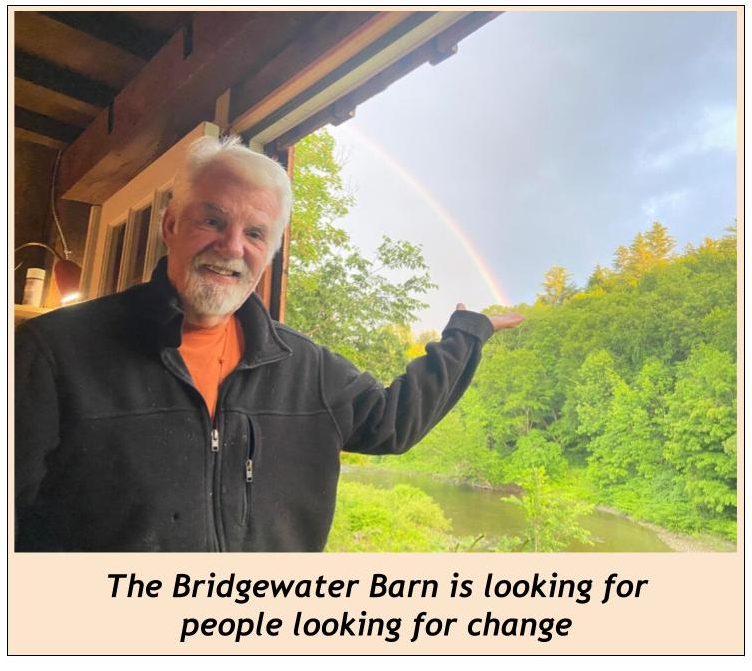Embedding mental health workers in police won’t create necessary culture change, survivors and experts tell lawmakers – to no avail
This news article was first published in the most recent edition of Counterpoint, a Vermont newspaper for psychiatric survivors.
The Vermont State Police have been authorized by the Legislature to expand use of embedded mental health clinicians from two to nine of its 10 barracks in the next year, despite strong objections to that model of crisis response in testimony by psychiatric survivors.
The positions will be filled through contracts with local mental health centers, according to language included in the state budget.
The program was the subject of intense, last-minute negotiations between House and Senate leaders before the close of the legislative session in September.
The House had directed that mental health support to assist police with emergencies be considered a health issue, with the funding removed from the budget of the Department of Public Safety. It placed responsibility under the Department of Mental Health.
It also said that, where possible, priority for the staff positions should be given to mental health peer workers, and it directed that marginalized communities, including psychiatric survivors, be included in planning.
Senate negotiators rejected those requirements and said that the funding and oversight should remain solely within the purview of the state police, because culture change in law enforcement needs to come from within.
In a compromise late in the evening before the final budget was adopted, senators agreed to say that the state police, although in charge of the program, must collaborate with DMH to support incorporation of trauma-informed services and the ongoing engagement of stakeholders, “including individuals with lived experience of a mental health condition or psychiatric disability.”
The peer staffing language was struck. Sen. Tim Ashe criticized it, saying that the legislature often talks about initiatives being evidence based, and “then we go and create provisions that aren’t necessarily based on evidence.”
During five hours of testimony over three days, the House Health Care Committee heard from 20 witnesses, including a number of psychiatric survivors and advocates who said that embedding mental health within police would not create the change that is needed.
“In Vermont, the people who are most likely to be killed by police are those who are experiencing emotional crisis.”
Calvin Moen

“In Vermont, the people who are most likely to be killed by police are those who are experiencing emotional crisis,” said Calvin Moen.
He pointed to the national momentum towards divesting from policing and investing in community services. In contrast, “this proposal expands the reach of the police,” he said.
Whereas there is a need for “greater efforts to extricate mental health from law enforcement, this proposal would further enmesh them,” Moen said.
The “message that is sent here is that mental health is a criminal issue, is a public safety issue … reinforcing that myth that we are dangerous and violent people.”
Moen and other witnesses said that placing the money under DMH was preferable to DPS, but that raised problems as well, because the mental health system also presents threats of bodily harm and incarceration in hospitals.
There is a “cultural understanding that police can be dangerous,” said Malaika Puffer, but not a similar recognition that mental health providers also create risks of harm.
The expanded use of trained peers and of broader peer community services to prevent crises was also proposed in testimony.
The Senate Health and Welfare Committee took briefer testimony, hearing from six witnesses.
Wilda White, founder of a new psychiatric survivor advocacy group, MadFreedom, whose mission, she said, “is to secure political power to end the discrimination and oppression of people based on mental status,” opened her comments by responding to earlier testimony by DPS Commissioner Michael Schirling.
“This is a proposal whose time has passed. Commissioner Schirling talked about how he was baffled why anyone could be opposed to it, and I have to express my bafflement at his bafflement,” she said.
“In this post-George Floyd, Daniel Prude era, it is imperative to eliminate law enforcement’s interactions with people with mental health and emotional distress, whether they’re working with embedded mental health clinicians or not, except perhaps in situations involving violence to others,” she said.
Representatives from community mental health centers involved in various models of mental health crisis response also provided testimony to both committees.
In the debate between the budget conference negotiators, Ashe said that there are two state police barracks with embedded worker programs that have been “up and running for years” and have been “universally commended by both the mental health providers and the state troopers who work alongside with them.”
By trying to change the model, “we’re going to put that at risk,” he said.
Sen. Jane Kitchel, chair of the Senate Appropriations Committee, said that “the dynamics are very, very powerful” for change to be driven by ownership of the money and the responsibility for it. To change law enforcement response, “the leadership and ownership has to come from the state police [because] that’s where the culture change needs to take place,” she said.
“We want to make the responsibility and the leadership and the vision to start moving away from that more traditional law enforcement response with the very department that has got to undertake it,” she said. “That has to come from the department. It has to come internally.”
Rep. Mary Hooper said the House felt “pretty strongly” that making the shift away from “regarding individuals who are experiencing mental distress as being aberrant and needing a police response” required recognition of mental crises as a health care issue, with the leadership therefore coming from DMH.
She said it also “needs to involve folks with lived experience” of mental health conditions.
“Those are all of the elements that are going to drive the cultural change,” Hooper said. “We want to make sure that we have the right people at the table.”
In negotiating the compromise, the Senate refused a statement by the House that a purpose of the project was “to enhance the ability statewide to provide safe, appropriate crisis responses that reduce involvement of law enforcement when those supports are not necessary for public safety, and that ensure strong coordination when those supports are necessary.”
The House had also wanted DMH to coordinate further development of a statewide approach to mental health emergencies and emergency calls “under the leadership of impacted communities” and in collaboration with law enforcement, mental health agencies, and the DMH standing committees for adult and children’s mental health. The Senate rejected that as well.
The House Health Care Committee had heard testimony that people in the LGBTQ and Black communities who experience a crisis are at significant additional risk of police use of force, and included as stakeholders “those whose identities cause them to experience additional marginalization.”
Ashe challenged that language, saying it was an unrelated issue, but he withdrew his request to remove it.
Burlington, which has had an ongoing protest over police use of force, has also announced plans for mental health staff to be added and housed under the police department. One of the three officers who protesters have been demanding be fired had punched a man who was experiencing a crisis. He died a few days later and the death was ruled a homicide, but the officer was not prosecuted.
The Burlington police proposal resulted in objections from the Vermont Racial Justice Alliance, which issued a statement saying that “social workers in the police department creates a dangerous precedent and blurs the line between policing and social services at a time when community members are asking for clearer separation of roles.”
A study on how mental health and race data could be tracked in the future on emergency service calls, and the outcomes of those calls, was added in a separate section of the budget bill. It was based upon a proposal made by White, who testified in both the House and Senate that the police-mental health worker proposal would have a “disparate effect on Black people and people of color.”
She cited the history of disproportional use of psychiatric diagnoses on those communities, often “equating race with insanity,” and said that because of institutional racism, embedding of mental health workers in law enforcement is “a combustible mix” that her organization opposes.
Your monthly support is greatly appreciated! Vermont Daily does not charge and never will charge subscribers. Your support will underwrite substantial web hosting and development costs.
VERMONT DAILY COMMENTS (comment at link at bottom of page):
RECENT COMMENTS on ALL VERMONT DAILY POSTS:
Impeccable timing for this article. Just the other day I received an invitation to participate in a Green Mountain survey…
The elitist third rail- Education Spending. Not Educating, Not Education- but Education Spending. In the same venue as Climate Change™,…
And, he voted to sustain Governor Scott’s veto of the Clean Heat Act.
Awesome !Thank goodness 👍👍👍 God bless 🙏
If the people of Vermont want to turn things around it is easily done,as long as the election process is…
RECENT NEWS:
- Special Wednesday edition of Friday at Four…at 4!
- Sen. Bobby Starr to retire
- 10 guns stolen from Derby gun store
- Burke: An hunter’s view on S. 258
- Klar: Transgender surgery is the lobotomy of the 21st Century
VT Watercooler Comment of the Day:
ZUCKERMAN WOULD HAVE ENFORCED MASK BAN SOONER: “Zuckerman sold his soul to Big Pharma. It’s pretty sad.”
Comment on VTWatercooler news by going to www.vtwatercooler.com:
Impeccable timing for this article. Just the other day I received an invitation to participate in a Green Mountain survey…
The elitist third rail- Education Spending. Not Educating, Not Education- but Education Spending. In the same venue as Climate Change™,…
And, he voted to sustain Governor Scott’s veto of the Clean Heat Act.
Awesome !Thank goodness 👍👍👍 God bless 🙏
If the people of Vermont want to turn things around it is easily done,as long as the election process is…
Categories: Health Care, State Government







Recent Comments